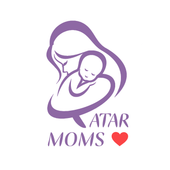Burping is one of the simplest yet most essential parts of a baby’s feeding routine. It helps release the air swallowed during feeding and provides comfort to the baby by reducing gas and fussiness. However, some parents notice that their infant is not burping, which can raise concerns about the baby’s comfort and health. In this article, we’ll explore why this happens, what it means, and what you can do about it.
Why Is Burping Important for Infants?
When babies feed—whether breastfed or bottle-fed—they naturally swallow some air along with milk. This air can build up in their tiny stomachs, making them feel bloated or uncomfortable. Burping helps release that trapped air, allowing the baby to relax and feed more comfortably.
Most pediatricians recommend burping a baby after every feeding session, especially during the first few months when their digestive system is still developing.
Why Is My Infant Not Burping?
If your infant is not burping, it doesn’t always mean something is wrong. Babies are unique, and several factors can influence how easily they burp:
1. Feeding position:
If the baby’s head is not slightly elevated during feeding, more air may get trapped in the stomach, making burping harder.
2. Fast milk flow:
A strong milk flow—either from breastfeeding or the bottle—can cause the baby to swallow more air, leading to discomfort if not released through burping.
3. Bottle design:
Some bottles allow air to enter while feeding. Using anti-colic or vented bottles (such as Tommee Tippee, Philips Avent, or Munchkin) can help reduce air intake.
4. Baby’s feeding habits:
Some babies naturally swallow less air, so they might not always need to burp after every feeding session.
5. Baby falls asleep before burping:
Many parents ask, “Is it okay if my newborn falls asleep without burping?” — In most cases, yes. If the baby seems calm, relaxed, and comfortable, it’s often fine to let them sleep. Just make sure they’re positioned safely on their back
What Happens If a Baby Doesn’t Burp?
It’s a common question among new parents: “What happens if a baby doesn’t burp?”
Generally, if the baby doesn’t burp, the swallowed air can remain trapped in the stomach, leading to temporary discomfort. This may cause:
- Fussiness or crying after feeding
- Difficulty sleeping due to gas pain
- Spitting up milk more often
- Refusal to feed again because of a full or gassy feeling
In rare cases, constant trapped air can contribute to reflux or increased colic episodes. If your baby is showing persistent discomfort or vomiting frequently, it’s best to consult a pediatrician.
How to Help Your Baby Burp ?
If your infant is not burping, there are several gentle techniques you can try:
1. Hold your baby upright:
After feeding, hold your baby against your shoulder with their head supported. Gently pat or rub their back for about 5–10 minutes.
2. Try different burping positions:
- Sit your baby upright on your lap and support their chest and chin while patting their back.
- Lay your baby across your forearm on their tummy, with their head supported, and gently rub their back.
3. Pause during feeding:
Stop halfway through the feeding to give your baby time to burp before continuing. This helps release small air bubbles early.
4. Use anti-colic bottles:
Choose bottles with vent systems that minimize air swallowing. Popular options include Dr. Brown’s, Philips Avent, and Tommee Tippee, available on Qatar Moms for safe and comfortable feeding.
5. Keep your baby upright after feeding:
Even if the baby doesn’t burp right away, keeping them upright for 10–15 minutes can help air escape naturally.
When to Seek Medical Advice
If your baby consistently refuses to burp and experiences ongoing discomfort, vomiting, or excessive crying, talk to your pediatrician. These could be signs of reflux, food sensitivity, or another digestive concern.
Some Additional Tips for Mothers
- Avoid overfeeding to prevent your baby’s stomach from filling with air.
- Make sure the nipple size is appropriate for your baby’s age to reduce air intake.
- Don’t worry if your baby doesn’t burp every time—some infants don’t always need to.
It’s completely normal for new parents to worry when they notice their infant not burping after feeding. But in most cases, it’s not dangerous. Every baby is different — some burp frequently, others rarely do. The key is observing your baby’s behavior: if they’re calm and content, you don’t need to force it.
With the right feeding techniques and the use of High-Quality Baby Bottles like : Plastic Feeding Bottles, Glass Baby Bottles, and feeding bottle accessories : Bottle Brushes, Bottle Warmers and Bottle Sterlizers from Qatar Moms, you can ensure that every feeding experience is smooth, safe, and comfortable for both you and your little one.
 FREE DELIVERY FOR ORDERS ABOVE 100 QAR
FREE DELIVERY FOR ORDERS ABOVE 100 QAR DELIVERY WITHIN 3 HOURS
DELIVERY WITHIN 3 HOURS APPLE PAY AND CARD PAYMENT AVAILABLE
APPLE PAY AND CARD PAYMENT AVAILABLE



